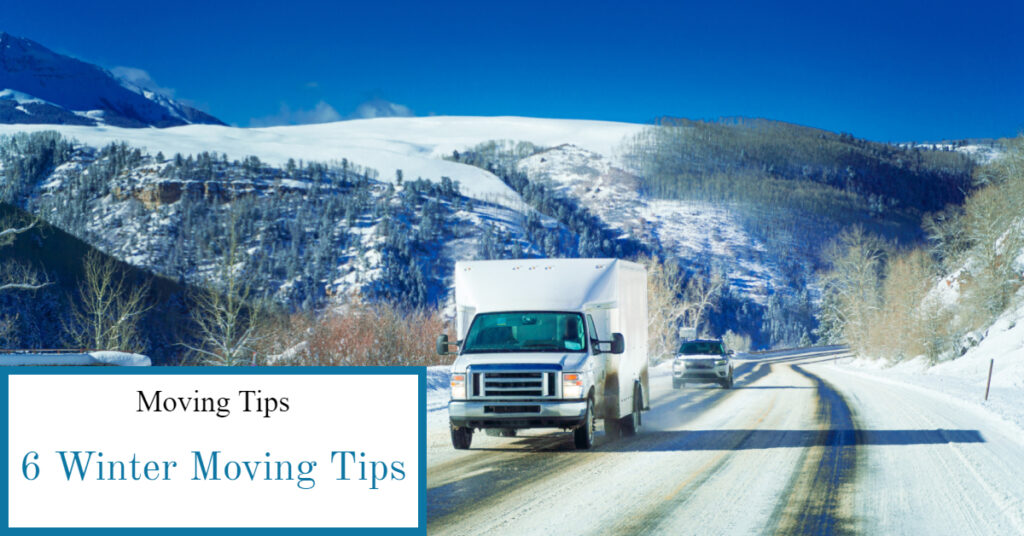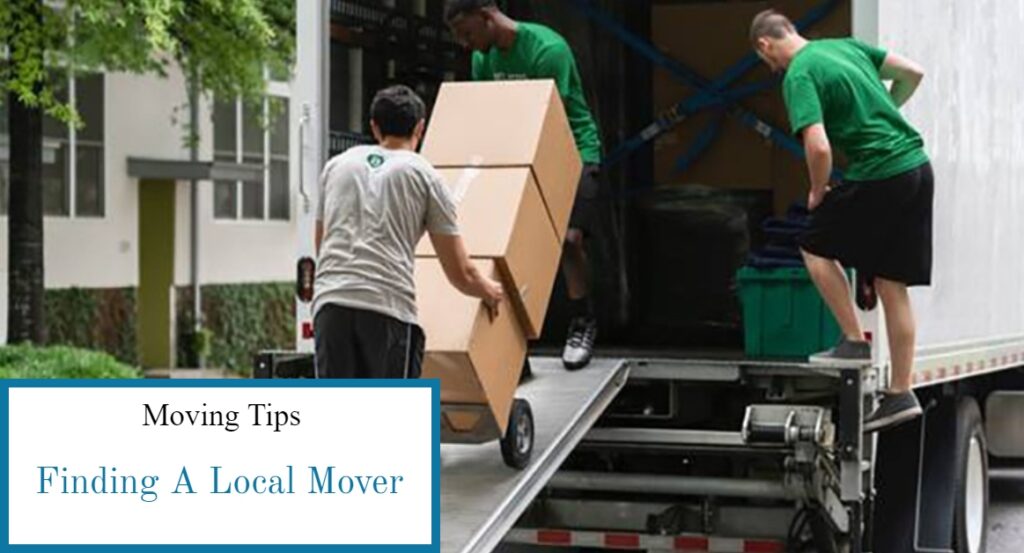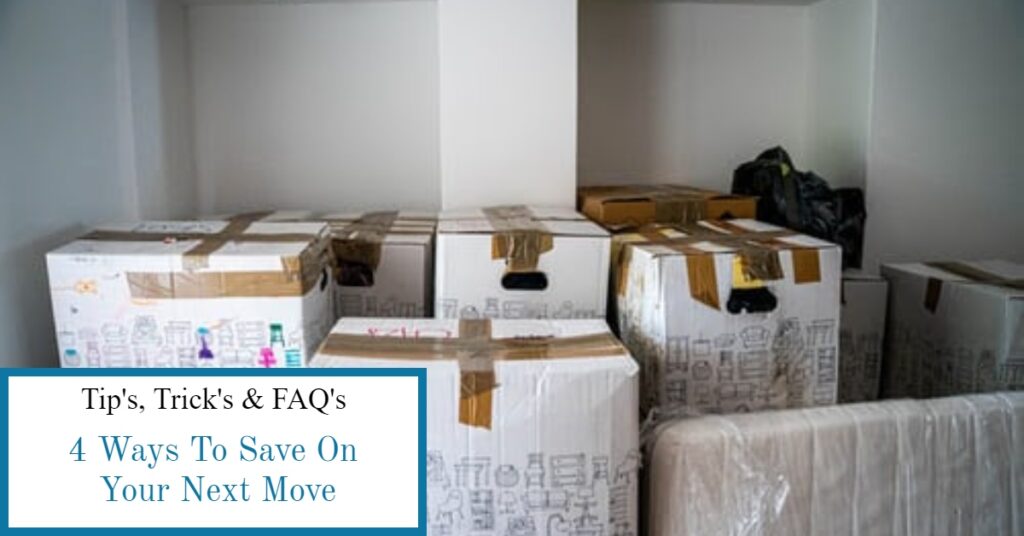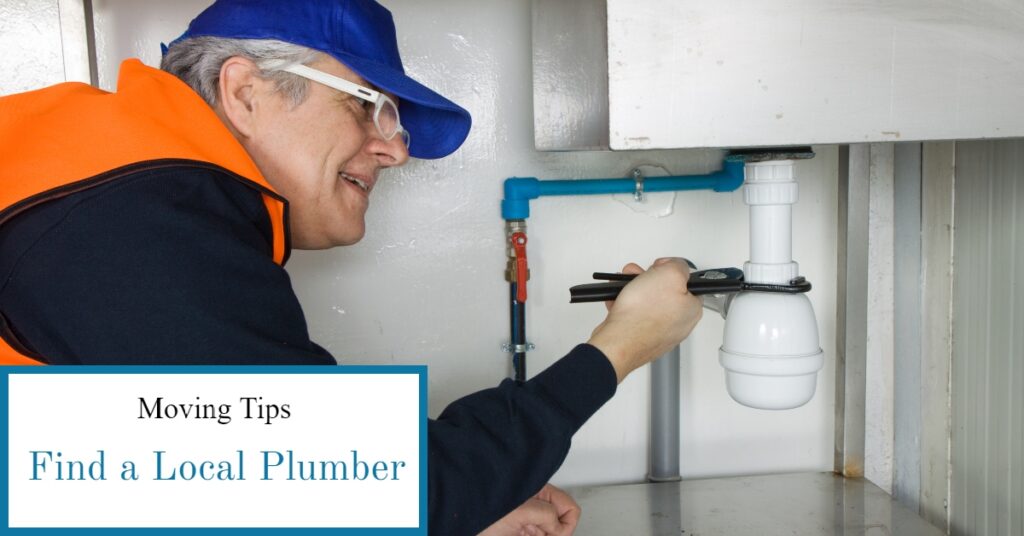Category: Moving Tips

Following are 6 winter moving tips that are sure to help. Moving during the winter has its challenges, weather being the biggest challenge. Whether the move is cross country, cross the state, or cross town the weather plays a huge role in winter moves. Oftentimes, winter moves deal with snow storms, brutally cold weather and unforeseen delays. Therefore, it is important to pay attention to the weather forecast during this transition period.
Being prepared for the worst weather will make the move easier. It is best to keep in contact with the moving company for any last minute changes due to the weather conditions. If you are moving yourself, knowing whether a storm is coming will help in the decision on renting the truck. Therefore, it is important to be aware of the weather. The 6 winter moving tips below are sure to help you.
6 Winter Moving Tips: Be Prepared is # 1
It is important to have your vehicle storm ready for the trip. Make sure the gas tank is full, tires are properly inflated, and any emergency equipment is in the vehicle. Unfortunately, breakdowns do occur. Being prepared takes some of the stress out of the situation. Therefore, it is important to prepare for the possibility of a breakdown during a winter move.
#2 Keep Warm
Secondly, keeping yourself warm and dry is a top priority. Wear layers, if you are warm you can take a layer off. Then if you get chilled you can put that layer back on. Keep extra gloves in your vehicle in case yours become wet or cold. A simple trick is to keep hot drinks and hot snacks available. Drinking a hot beverage will warm you up from the inside.
One energy saving tip is to turn the heat off at both locations during the actual move. Once the movers are done, turn the heat back on. It is better to have the heat run steady for 30 minutes than to have it run all the time the movers are loading or unloading the truck and then the 30 minutes or so to heat the house back up. It is advisable to have a warming room if you turn off the heat. Choose a small room and bring in a few electric heaters. Keep in mind that children and pets should not be allowed in the warming room alone.
6 Winter Moving Tips: #3 Services On
Other things to consider are the services in your new location. Making sure the electricity and water are on, heat is running properly, Internet and cable are working will add peace of mind to any move. In the winter it is especially critical to have the heat operational. Therefore, making sure the services are on and operating properly will help during a winter move.
#4 Protect your flooring
Next, protect your flooring from the snow and dirt on the movers feet. Lay down plastic or tarps and keep a mop ready for any melting snow that makes it off the floor protection. This simple step could save you costly repairs to flooring.
6 Winter Moving Tips: #5 Self Storage
An often overlooked option is renting a climate controlled self-storage unit. The benefits during the brutally cold winter are very apparent. The movers can drop most of the non essential items into self storage. Then deliver the essentials to your new home. This will eliminate the time the heat will be off at your new place. The movers or you will not be exposed to the winter elements for an extended period. Then once you have unpacked the essentials you can bring in a few boxes at a time from self-storage. Self-storage is a great option for a winter move.
#6 Be Flexible
Lastly, take some of the stress out of a winter move by being flexible. Especially during the colder months incidents happen that can destroy a schedule. Setting your mind on a fixed time frame can set you up for big disappointments. Therefore, breathe and know the move will happen, be flexible and understanding.
Whether it is a large cross country move or a simple cross town move these 6 winter moving tips will help make a winter move less stressful. Being prepared and flexible about a winter move can make a tough task easier. In other words, take a little time and prepare your vehicle and homes for a winter move. Then be flexible about any issue that arrives that is out of your control. It is the little things that make a big difference in a winter move.

Finding a local mover has many considerations to explore before deciding which one to hire. First, it is best to remember that each situation is unique. No move is like any other move. Second, there is no cookie cutter formula to finding the best local mover. It will take finding the best local mover for your situation. While each situation is different there are some basic questions that should be addressed before deciding. In other words, finding the best local mover is purely a personal endeavor.
First step is to do a little research online. Especially in this day of technology most movers are online or have a website. Spend a little time researching local movers and checking their website for reviews. Reviews are a terrific way to gauge how a mover interacts with their clients. The website can also be a great resource for what information should be gathered before making a call. Once the research is finished, start calling local movers for more information before deciding
What information is needed before calling a local mover.
Concise information is critical to a mover. Having most of the information before you call will save valuable time for both of you. So, what kind of information should you have ready? In addition to the obvious information such as name, address, phone number, date of move, and destination a mover will need a general idea of the type of contents being transported. Equally important is if any of the belongings are oversized such as a pool table or grand piano. Not only will this require additional help but may require specialized tools to move them. Oftentimes when thinking about contents to be moved the garage and basement are overlooked or the self-storage units are forgotten. Remembering these additional spaces will help the local mover provide a more accurate estimate. Therefore, having all the information will save time and result in a better estimate.
What questions should be asked before deciding on a local mover?
Before calling the potential mover, have a list of questions ready to ask. Remember each situation is unique and add any questions needed to cover your situation. Some of the most important questions to ask are:
Do they have their local license? Typically, each state has some sort of licensing. There are seven states that have no license requirements. Maine is one state that has no license to be a local mover. Be sure to verify if your state has a license requirement and if the mover has a current license. To help avoid a fraud situation, request a copy of the license for your records.
What insurance do they carry? Like the local license it is best to request proof of insurance for your protection.
Do they have a cancellation policy? If so, what is it? This is important as situations do arise that are out of our control. Knowing ahead of time about any charges will avoid a surprise if something does interfere with the move.
What type of payment options do they offer? Most local movers require a deposit on a job. Others might offer a 3 pay program. Each local mover will have their own payment plan. In addition, know what types of payments they will accept.
Would they prefer to pack any specialty items like televisions or other electronics? A local mover will oftentimes offer this extra service as added protection against damage. Due to the fact they could be held accountable for this damage. As experts they have the knowledge to protect delicate electronics.
Additionally, these questions would be important. How to contact the mover during the move? If they have references. How long do they estimate the move will take and what is their current availability? As each situation is different there may be other questions to ask.
Deciding is a personal matter
Cost can be the biggest determining factor when choosing a local mover. Sometimes the lowest estimate is not the best deal. Other determining factors may make cost a secondary aspect of the decision. In other words, the unique needs of this move may require a mover with more experience. Therefore, all the information that has been gathered should be examined to help you decide on the best local mover for your situation.
Once a local mover has been chosen, things to expect
A reputable mover will want to do a walk through to give an accurate estimate of the cost. There are a few situations where it may not be necessary. If the contents of the move are already in a self-storage unit. The local mover would know without looking what size truck would be needed based on the unit size and type of contents. Furthermore, they would know how many workers to send to complete the job easily. In general, most moves require a walk through.
Next a local mover may require you to sign a contract with them for the move. This is a wonderful opportunity to review the contract and ask any questions to clarify what is expected from each party. As always, read the contract in its entirety before signing.
Then expect a follow-up call a few days before the scheduled move. Good movers are busy. Therefore, do not panic if no contact happens between the signing of the contract and the few days prior to the move. Whenever your situation changes, contact the mover as soon as possible. Additionally, contact the mover the day before the move if you have not heard from them. At this time, it would be prudent to discuss any specific needs such as the self-storage unit being loaded first as it is going to be stored at another location.
Moving Day
The big day has finally arrived. The local mover you chose has arrived. Now what? Communicate with the supervisor any specific needs discussed at the pre-move phone call. Then trust the experts and let them do the job you hired them to do. The best thing to do is let the supervisor know where you will be, in case there are any questions. They know how to load the truck to keep everything safe, it is why you hired them.

What is climate control storage and do I really need it for my possessions?
This is the most asked question when considering self storage in Ellsworth, Maine and the surrounding areas. Climate control is when the external temperature and humidity are no longer part of the equation for possible damage to your valuables. The humidity level is kept in the optimal range of 35 to 50% to prevent damage from excessive moisture or drying from too little moisture which can be devastating to wood and leather. The temperature is kept within a range relative to the outside temperature to prevent drastic temperature fluxuations. Condensation and moisture caused by this drastic change can wreak havoc on stored items.
When considering climate control ask yourself a few questions to determine if climate control is needed for your possessions. Use the chart below to help.
| Question | If the answer is yes… recommendation | If the answer is No… Recommendation |
| Will it freeze? | Climate Control Storage | Drive Up Storage |
| Is it replaceable? | Drive Up Storage | Climate Control Storage |
| Will it be stored for longer than 6 months? | Climate Control would be best esp in extreme temp fluctuation conditions | Drive up is ok for short periods |
| Is it an heirloom? | Climate Control Storage | Drive Up Storage |
| Will moisture of any kind ruin it? | Climate Control Storage | Drive Up Storage |
| Will the temperature have drastic changes during storage time? | Climate Control Storage | Drive Up Storage |
What items should always be stored in climate control to protect them?
The following list contains items highly recommended for climate control:
- Photographs ~ moisture will destroy photographs or cause them to stick together
- Artwork including refrigerator art ~ canvas, paper and wood should all be stored in climate control
- Heirlooms ~ keepsakes and valuable heirlooms will succumb to moisture ruining them
- Electronics ~ check manufacturers recommendations for storage
- Antiques ~ moisture and dryness are both enemies of antiques
- Leather goods ~ from jackets, to furniture and sports related items if it’s leather extreme heat and/or dry air will ruin them.
- Musical instruments ~ the delicate nature of instruments require the humidity controlled environment of climate control
- Important papers or documents ~ moisture is the bane of paper, it can cause destruction beyond repair in a short period of time.
- Sports Equipment ~ especially leather in nature
- Medical supplies ~ most medical supplies can freeze causing them to become useless
- Makeup and toiletries ~ lots of makeup items will freeze ruining them or moisture will destroy their usefulness.
- Art supplies and paint
- In colder climates washers and refrigerators with ice makers any water left in the lines or pump will freeze and burst causing them to leak.
In conclusion, climate control is your best option for long term storage to help prevent damage caused by extreme temperature changes and humidity levels. If your storage needs are for a short period of time drive up or conventional storage will suffice. If you have any questions ask the facility manager for their recommendations.
PRO TIP: If you opt for outside, drive up storage, stop by your unit every few weeks during the Fall and Spring months when temperature changes are the most drastic and open the door for 5 to 10 minutes allowing the air to circulate and help reduce the possibility of condensation in your unit.

Have you considered moving, like an entire interstate relocation and change of city process? Even if you haven’t considered it, it could happen anytime. According to the United States Census Bureau, an approximated number of 31 million Americans move each year, and as much as 3 million, move interstate.
Various reasons can prompt the need to move out of state. These reasons may include the need for a fresh start in life, an office promotion, traveling for further education, moving in with a partner in a different city, or the loss of a loved one resulting in the need to sell off property as soon as possible to trusted house buyers.
Whatever the reason may be, the easiest part of moving out of state is “the decision” to move. Every other part of the process is challenging and has some concerns associated with it.
Some of these challenges include:
Leaving all previous experiences, friends, and family
This process is not an easy one. From the moment you announce your possible move out of state, even for new and exciting opportunities, the gloom sets in. Subconscious sadness and a wild attempt to adjust to the reality of living without family and friends, with whom you have created amazing memories, becomes a daily routine. This does not mean you will not move, you will, probably amidst tears.
The cost of moving out of state
Moving out of state costs a lot of money. If you have lived in your current city for a long time you may have accumulated a lot of belongings. These belongings may include presents from all forms of celebrations, the spur of the moment purchases you never used, and the non-essentials needed for daily comfort.
If you have to move with all of these belongings, you are going to need a truck or a mover, and the larger the truck, the greater your expense, amidst other payments. The estimated average cost for an interstate move is $4,800. That is an amount you may be concerned about spending. However, there are easy and effective ways to save money on your next move out of state, whenever that may be.
Four Ways To Save Money When Moving Out Of State
Tip #1 Rid yourself of sentiment. Don’t move what you don’t need.
This may be a good time to make some extra cash, you are moving to a new state and need all the money you can get. How about creating a note, honestly taking into consideration every belonging you own? Yes, you may need to sell off some of them.
The television set no one ever used, the worn-out favorite couch from a decade ago, the grand piano your mum loved greatly which no one plays it anymore since her death, bulky electronics and furniture, the list should be as exhaustive as possible. What do you have on that list which you haven’t used in a year? This is a tough decision, but to save money, you need to get rid of them.
Don’t move what you don’t need. You can sell them off locally at garage sales, list them online using apps or on local social media communities, and for those items that you love dearly, you can offer them as gifts to friends and family who need them. With this, now you have the essentials left.
Tip #2 Use local storage facilities.
Using a storage facility is cost-effective. Having sorted through your belongings and gone through the gruesome task of decluttering, now you have the essentials—properties and belongings you have to keep. Some of these belongings may not be needed for immediate use. If you can live without them for a while then maybe you should opt for an affordable and safe storage facility. This will save you the stress, time, energy, and money required to move everything across the state.
The average standard storage unit rent costs $60 to $180. Additionally, you can save more money by taking appropriate measurements of your fixtures’ dimensions, especially the furniture, and running the measurement by the unit estimator to ensure you pay for the right unit size. Also, you get to choose favorable conditions for the storage of your items—climate controlled or non-climate controlled, anything to keep your items safe.
Tip #3 Do some local search to source storage boxes.
When moving, you don’t need to buy new storage boxes. Some open conversations in your neighborhood, physically or in online communities requesting storage boxes can get you all the storage boxes you need. Even if you don’t get them completely free, you can get them at heavily discounted rates. However, as much as you can, try to fit your items into equal-sized boxes. This ensures that the boxes can be packed properly without tipping, whether they are moved miles across the state or moved to a local storage facility for safety.
Tip #4 Call in favors from friends and family.
What do you have left to move across the state? Can your friends and family help you move them? If all you have left are easy fixtures and properly packed storage boxes, then you may call in your friends and family to help you move.
Instead of paying professional movers, you get to buy boxes of pizza, have a merry inter-state trip, and also get a new company on arrival at your new house. While this is a great tip, you need to consider how far your new location is, and also ensure that your friends/family can move whatever items you have efficiently to this new location.
Moving out of state is not an easy task, there will be various challenges and unbudgeted expenses before, during, and possibly after moving. Consider all your options meticulously and explore all possible ways to save money, you will need the extra cash at your new location.
Try to avoid moving during the busy or peak travel period, it will save you some money. Even if you have to move during a busy period, if you don’t have to move everything at the same time, you can opt for a storage facility, keep your belongings in a safe unit and move them at a convenient time.

How to find a local plumber
Moving has many challenges including finding service people, especially a good local plumber, to help keep your new home in Brewer, Maine running smoothly. Finding a good local plumber before an emergency strikes can make the difference between minor damages or a total catastrophe. When finding a local plumber your first resource could be the previous home owner. If they had a local plumber you could ask who they used and how they felt about their service. But what if they didn’t have a plumber or didn’t like the plumber they had? Here are some important questions and considerations when searching for a good local plumber.
Referrals:
If you have family or friends who live close by, ask for a referral. Ask if the company or plumber provides emergency services, as we all know emergencies rarely happen during regular business hours. Still research the referral they may or may not be a fit for you. If you don’t have family or friends close by, use the Internet and search for “Local plumbers near me” read the reviews, both the positive and negative ones. Pay attention to how the owner or plumber responded to the negative reviews. Was the issue resolved, did the company respond compassionately or defensively. These would be a huge consideration when choosing a local plumber. Also use the Better Business Bureau, on the BBB website you can look up the rating for a company.
Communication:
Communication is one of the most important aspects of any business relationship. Your first contact with the local plumbing company or plumber will help you determine the likelihood of a good fit. The initial contact can be a huge clue as to the level of communication you can expect if you become a client. Where they courteous or curt, do you feel like all your questions were answered or not? These are some things to think about after your conversation.
Licensing and Certifications:
All states require some form of licensing or certification to become a plumber, be sure to ask for their license number and verify it. Your State’s government website has a “verify a license” tool, easily accessible via a web search for <Maine (or your state) plumbing license lookup>. The tool is easy to use and will verify the plumber’s license! Ask if all their employees have a license and if you can request a master plumber if you feel the job requires their expert knowledge. A master plumber has years of experience and even though their hourly rate is generally much higher than a journeyman’s rate they could save you time and money with their extra knowledge.
Insurance and Bonded Company:
You should ask about the type of insurances they hold. As a business they are required to carry some form of liability insurance to cover you if there is an issue. They should also carry Workers Comp Insurance to protect their workers from any injury they incur. If they don’t have workers comp insurance be aware that you will be held responsible for any and all injuries that happen while working on your house. The next type of insurance is bonding. Bonded means a bonding company has set aside a certain amount of money in the event a customer files a claim against the plumbing company. The state holds control of these funds not the plumbing company. You should check to verify they are actually bonded as well.
If you choose a company that isn’t bonded and insured and something happens while they are on your property you accept all the responsibility for any injury or damage. It’s not worth taking the risk for a cheaper rate. You could ultimately lose everything because you chose a company that was uninsured and not bonded.
Emergency or After Hours Service:
One very important consideration when choosing a local plumber is; Do they have an “on call” service? Do they provide assistance when an emergency arises at 2am on a Sunday morning? Most companies will only take on your emergency if you are already a customer. It is recommended that you schedule a routine service call to establish that relationship. Walk through your home, take note of any leaky faucets, low pressure in your shower head or sinks, drains that are not going down well, etc and call to set up an appointment. This will establish your relationship.
Rates:
Rate comparison may be the most confusing aspect of finding a local plumber. There are many variables to a rate. Some companies have a flat rate for a certain service and an hourly rate for others. It’s important to find out as much as you can about how they bill to avoid a shock after a service call. Ask the following questions:
- Do they bill for travel time?
- Do they have a minimum charge rate? IE will they bill you for an hour even if the tech is only there for 30 minutes
- How do they bill if it goes over the minimum time? Some bill by the 15 minute increments after the first hour and some in 30 minute increments.
- What is their rate for a master plumber, a journeyman, or an apprentice?
- What is the emergency rate? Most places have a different rate for emergencies
- Can I request a certain plumber? This is important if it’s not a single person business.
The average range for the hourly rate goes from $45/hour to $150/hour. The higher end of the rate scale is for the master plumber or the emergency rate. Remember the hourly rate is only part of the equation for your total bill, included will be travel time(if charged), materials, parts and supplies if used.
Finding a good local plumber can take a little time but when an emergency does happen you will be glad you made the effort and are already a customer. One call and your plumber is on the way hopefully before any real damage occurs. If the unthinkable does happen remember to use self storage while the damage is being repaired!

Moving to Ellsworth Maine, Avoid 3 Most Common Moving Mistakes!
Moving is ranked in the top 10 most stressful events in life and can be the single most stressful event when things go wrong. It can be a logistical nightmare! There’s not a lot of room for mistakes when moving. First, it’s finding the right place, then packing and unpacking, finding new schools, shops and other services. In addition, there is also the financial stress and emotional aspect, especially if you’ve been in a place for a long time. Starting fresh in a new neighborhood, city or even country can be extremely stressful.
Getting ready to move to or from Ellsworth, Maine, and need some moving tips to help you stay on the right track? Avoid the three most common mistakes made while moving to help avoid a disaster and prevent unnecessary stress in your life. The following tips can help you plus utilizing self storage can be a huge stress reliever!
Avoid the Three Most Common Mistakes!
Poor Time Management: Waiting Until the Last Minute
Procrastinating will only make things harder on you, leading to unnecessary stress. It’s best to start planning your move ahead of time, as in weeks and even months beforehand. Waiting until the last minute may cause you to forget important details that can quickly escalate into an epic disaster. Waiting until the last minute can create a nightmare when you unpack.
Packing Tip #1: Start packing as soon as possible. Start with non essential items, sort belongings, pack them a little at a time. Label boxes well to save you time when it comes time to unpack! Put yourself in a prime position to have everything ready to go on time. Storing these non essential boxes in Self Storage will help keep your house neat and make it easier to finish packing.
Keeping Things You Don’t Really Need
A list of moving tips wouldn’t be complete without talking about clutter. Whether you’ve been in your current place a year or twenty years, we all accumulate things, now is the best time to downsize. It’s easy to start throwing everything you own into boxes and loading them onto a truck. But once you’re at your new place, you’re stuck with things that you don’t really need! The extra work when unpacking can add unnecessary stress to an already stressful situation. Take a little extra time now, it will be worth it.
Packing Tip #2: Go through your things critically. Decide what you should and shouldn’t keep. Make separate piles, consider donating your excess belongings, having a yard sale to earn some extra moving cash, and disposing of things that are beyond their prime. Only keep what you need in your new place.
Packing Without the Right Supplies
Before you begin packing, it’s crucial to have packing supplies on hand. Packing will go smoother for you and everyone involved if you have all the right materials. You might only think about boxes and tape, but also consider how you will pack fragile items. Plan for your larger items, how will you move larger items in your home. Having all the correct supplies on hand for moving day will help for a smooth transition.
Packing Tip #3: Use carts and dollies to move heavy items. Have bubble wrap and packing peanuts on hand to protect your breakable items. Mattress and furniture covers are invaluable for protecting your possessions during transport. You can use old blankets to protect furniture as well.
Storage Units Make Packing and Moving Easier
Moving in Maine is hard enough; don’t make it harder on yourself by waiting until the last minute or packing without having the right supplies. Avoid some of these common packing and moving mistakes by planning ahead, banishing the clutter, and using self storage units to your advantage. With storage space in Ellsworth, Maine, you can place your items in a unit before moving to help alleviate the stress of stumbling around stacked boxes. Once you move to your new location you can bring them home as you need them, thus keeping loads of boxes out of your way as you prepare to move into your new home.
Recent Comments